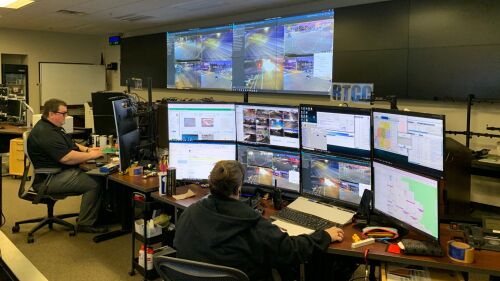By Police1 Staff
SCOTTSDALE, Ariz. — During the National Real Time Crime Center Association conference in Scottsdale, Ariz., Mandy Nice, senior strategic wellness director at Lexipol, highlighted the mental wellness challenges faced by real time crime center (RTCC) operators due to the nature of their work.
In this video, Nice discusses some top tips for maintaining good physical health during shifts through proper eating and hydration, addressing ergonomic issues in small workspaces and more.
How does your agency measure up when it comes to wellness? Lexipol’s Wellness solutions help agencies deliver anonymous, 24/7 support, enhance peer support team readiness and build a culture of wellness. Contact Lexipol at 844-312-9500 to learn more or request a demo.
From managing parking and monitoring street flooding to responding to wildfires and terrorist attacks, RTCCs are helping agencies tackle a wide range of public safety challenges
By leveraging existing resources, collaborating across functions and utilizing cost-effective middleware tools, agencies can create a more cohesive data infrastructure
By giving officers real-time access to video, RTCCs are turning in-progress calls into solved cases and helping agencies close investigations faster and more safely
April 08, 2025 01:10 PM
·
Nikki North, RTCC manager at the Flagler County (Fla.) Sheriff’s Office, shares how mutual respect and early involvement are key to successful communication
April 08, 2025 11:29 AM
·
From their purpose to common misconceptions, this FAQ breaks down the essentials of real time crime centers and their role in modern policing
April 02, 2025 09:58 AM
·
In an era where technology significantly enhances law enforcement capabilities, Real Time Crime Centers (RTCCs) have emerged as a critical component for modern policing
February 27, 2025 12:37 AM
·







